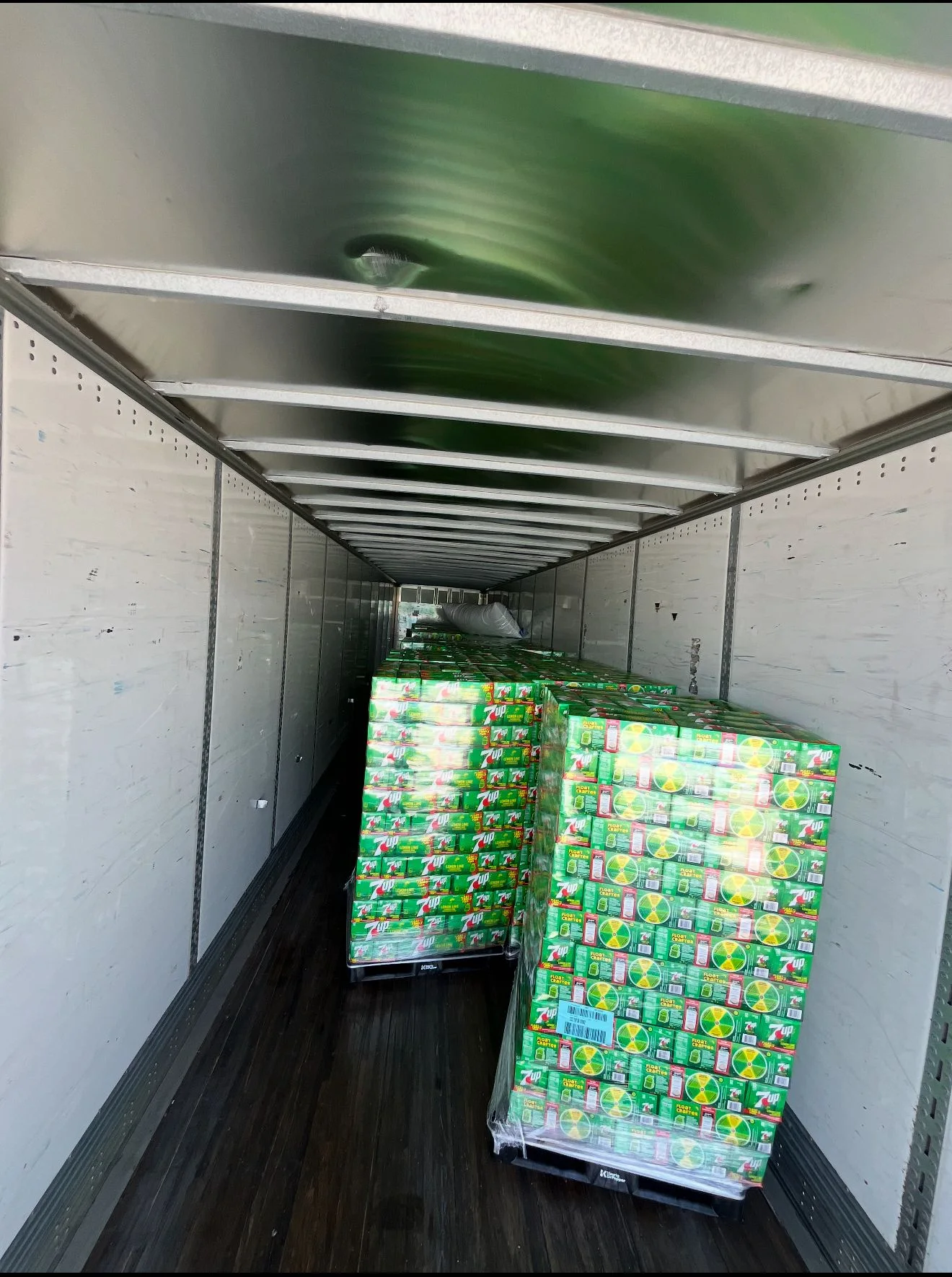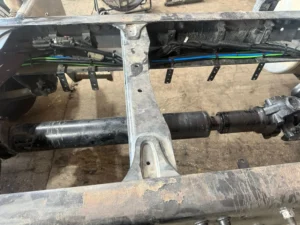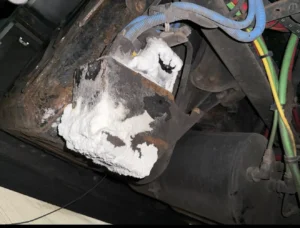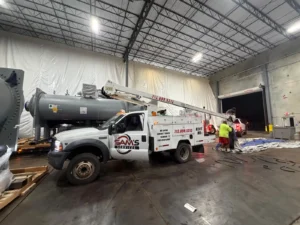
When most drivers think about trucking hazards, they picture slick highways, reckless drivers, or sudden breakdowns. But one of the most dangerous threats often hides inside the trailer itself: load shifts. A single shift in cargo can turn a safe delivery into a dangerous, costly situation — putting drivers, forklifts, and freight at risk.
At Sam’s Services, we’ve seen firsthand how a poorly secured load can lead to delays, damaged freight, and unsafe unloading conditions. Let’s break down why load shifts happen, the dangers they bring, and how to prevent them before they derail your delivery.
What Are Load Shifts?
Load shifts occur when cargo inside a trailer moves from its secured position during transit. Instead of staying centered and stable, pallets slide, tip, or collapse against the trailer walls or onto each other.
This shift can happen gradually over miles of rough roads or suddenly during sharp turns and hard braking. Either way, it creates an unsafe condition for unloading and increases the risk of freight damage.
Why Load Shifts Happen
Even experienced drivers and warehouse crews sometimes underestimate the importance of proper load securement. Here are the most common causes:
1. Improper Load Securement
Missing or improperly placed load bars, straps, and chocks allow freight to move freely inside the trailer. One loose pallet can trigger a domino effect, leading to widespread cargo damage.
2. Sudden Braking and Sharp Turns
Inertia is powerful. When a driver brakes suddenly or takes a curve too fast, pallets can slide or topple. This is especially risky in urban traffic around Houston, where sudden stops are common.
3. Uneven Weight Distribution
If freight is not evenly distributed, one side of the trailer may carry more weight. This imbalance increases the likelihood of a load shift during transit.
For more tips on keeping your truck road-ready, check out our post on pre-trip inspections.
Roadside Support You Can Count On
No matter the situation, our reliable roadside assistance ensures you get the help you need, fast. From breakdowns to emergencies, we’re here 24/7 to keep you moving.
The Hidden Dangers of Load Shifts
At first glance, a shifted load might not seem serious. But the dangers quickly become apparent once unloading begins.
Unsafe unloading conditions – Forklift operators risk injury when maneuvering around shifted or leaning pallets.
Increased cargo damage – Collapsed freight often results in torn packaging, crushed goods, and costly claims.
Delivery delays – Damaged loads may require repalletizing before unloading, wasting time and money.
Rejected shipments – Shippers may refuse loads that appear unsafe or damaged, leading to chargebacks or loss.
When combined with roadside hazards like debris damage, a load shift can bring your entire operation to a halt.
Real-World Example: A Forklift Hazard Waiting to Happen
We recently encountered a case where pallets shifted heavily against one side of the trailer. To the untrained eye, it looked manageable. But when a forklift attempted to enter, the reduced floor space created a dangerous situation.
The vibration of the forklift nearly caused the pallets to collapse further — risking both the operator’s safety and the freight itself. Situations like these prove that load shifts aren’t just an inconvenience; they’re a serious safety hazard.
How to Prevent Load Shifts
1. Use Proper Load Securement
Always use load bars, straps, and chocks to stabilize pallets. Double-check tightness and placement before leaving the dock.
2. Balance the Weight
Distribute weight evenly from front to back and side to side. Avoid stacking heavy pallets on one side of the trailer.
3. Drive Defensively
Sharp turns, sudden lane changes, and hard braking increase the risk of freight shifting. Smooth driving keeps loads stable.
4. Perform Pre-Trip Inspections
A thorough inspection helps catch issues before hitting the road. Look for missing straps, loose pallets, or compromised packaging.
For more inspection tips, see our guide on roadside assistance in Houston.
What To Do If a Load Shift Happens
Even with precautions, load shifts can still occur. Here’s what to do:
Stop safely – Avoid continuing with a dangerous load.
Call professionals – Our cross-dock services and roadside assistance can help repalletize freight on-site.
Secure before unloading – Never allow forklifts inside a trailer with unstable pallets.
Document the incident – Take photos for insurance and freight claims.
Why Choose Sam’s Services for Load Shift Recovery?
At Sam’s Services, we do more than towing. Our team is trained and equipped to handle load shift recovery and repalletizing quickly and safely.
Fast Response – Whether you’re stuck on the road, at a dock, or in a yard, we’re available 24/7.
Experienced Crew – We handle everything from trailer repairs to freight recovery.
Safety First – We stabilize loads before forklifts or dock workers get involved.
Cost Savings – By repalletizing and securing freight properly, we help reduce chargebacks and rejected loads.
Keeping Freight Moving in Houston
In the fast-paced trucking industry, downtime is costly. A load shift doesn’t have to mean a lost load or a failed delivery. With the right precautions and a trusted partner like Sam’s Services, your freight can stay secure, safe, and on schedule.
For related topics, check out:
Get in Touch with us – Stay Safe, Stay Moving
Don’t let a load shift put your freight or your schedule at risk. Call Sam’s Services today for 24/7 roadside assistance, cross-docking, and repalletizing support.
👉 Request Service Now or call us directly for immediate help.
FAQs About Load Shifts
Load shifts are typically caused by improper securement, sudden braking, sharp turns, or uneven weight distribution. Even small mistakes in loading can lead to big risks.
Load shifts create unsafe unloading conditions, risk cargo damage, and may even cause rejected loads. They also endanger forklift operators and drivers.
Yes. We provide on-site repalletizing, load shift recovery, and cross-docking services in Houston to keep freight safe and moving.
Use proper load bars, straps, and chocks, balance weight, and perform thorough pre-trip inspections before every haul. Defensive driving also plays a key role.



